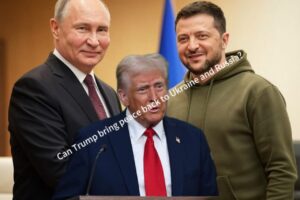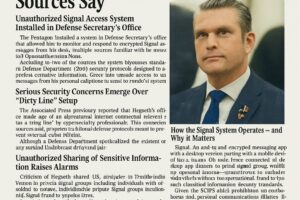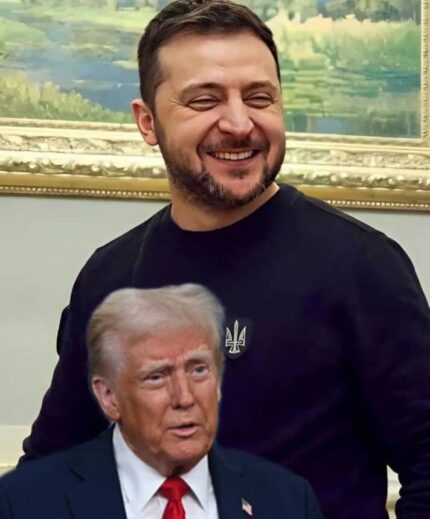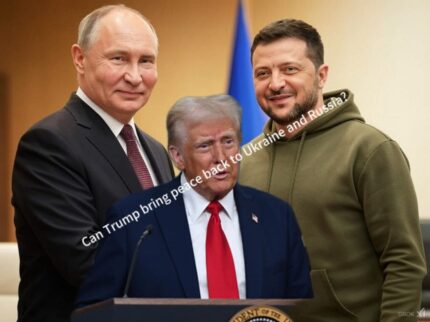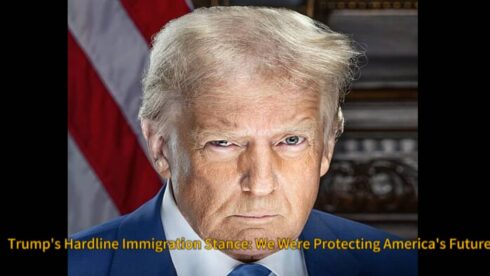The Biden administration is pressing Ukrainian President Volodymyr Zelensky to agree to a deal granting the U.S. access to Ukraine’s vast reserves of rare earth minerals, according to White House national security adviser Mike Waltz. Speaking at a White House briefing on Thursday, Waltz expressed frustration over Zelensky’s refusal to accept the deal, which former President Donald Trump believes should reflect the billions of dollars in military and economic aid the U.S. has provided to Ukraine since Russia’s full-scale invasion in 2022.
Ukraine possesses substantial deposits of critical minerals such as lithium, titanium, and uranium, which are essential for advanced military technology, electric vehicles, and other industries. Waltz described the proposal as a “historic opportunity” for Ukraine, suggesting that mineral rights could serve as a form of compensation for the extensive American support during the ongoing war. However, Zelensky dismissed the offer, stating unequivocally, “I can’t sell our state.”
Tensions Escalate Over Zelensky’s ‘Unacceptable’ Remarks
The dispute over critical minerals comes amid growing tensions between the Ukrainian president and the Trump administration. Waltz revealed that the White House was “very frustrated” with Zelensky, particularly after the Ukrainian leader made what the U.S. described as “unacceptable” insults toward Trump earlier in the week.
Zelensky’s remarks were reportedly in response to Trump’s claim that he had “started” the war with Russia—an assertion that the Ukrainian president rejected, accusing the former U.S. leader of being “trapped in Moscow’s disinformation space.” In retaliation, Trump labeled Zelensky a “dictator without elections,” further straining relations between Washington and Kyiv. The war of words underscores the shifting dynamics in U.S.-Ukraine relations, with Trump prioritizing negotiations with Moscow over direct support for Kyiv.
Zelensky Seeks Alternative Security and Investment Deals
Despite rejecting the U.S. minerals-for-aid deal, Zelensky remains open to discussions on broader security and investment agreements with Washington. Following a meeting in Kyiv with Keith Kellogg, the U.S. chief envoy to Ukraine, Zelensky announced his willingness to pursue an “investment and security agreement” to ensure Ukraine’s long-term stability.
Zelensky described the discussions as “productive,” stating that the talks focused on military strategies, the return of Ukrainian prisoners of war, and securing effective security guarantees. However, tensions between the two governments were apparent, as a scheduled press conference with Kellogg was abruptly canceled—reportedly due to a U.S. decision, leaving Ukrainian officials feeling sidelined.
Trump’s Direct Engagement with Russia Raises Concerns
The Trump administration’s approach to Ukraine differs significantly from previous U.S. policy. Trump, who has been in office for just a month, is actively engaging with Russian officials in an attempt to negotiate a swift resolution to the war. This shift has led to concerns in Kyiv, particularly as high-level U.S.-Russia talks took place in Riyadh, Saudi Arabia, without Ukrainian participation.
During the Riyadh meeting, U.S. Secretary of State Marco Rubio and Russian diplomats reportedly agreed to form negotiation teams to explore potential pathways to ending the conflict. Trump’s remarks after the meeting, blaming Zelensky for the war, further fueled speculation that Washington may be recalibrating its stance on Ukraine. U.S. Vice President JD Vance has stated that “nothing is off the negotiating table,” raising fears that Ukraine could be left out of critical discussions regarding its own future.
Ukraine Fears Being Excluded from U.S.-Russia Talks
As Washington and Moscow continue backchannel negotiations, Kyiv faces the troubling possibility of being sidelined in the diplomatic process. Zelensky has repeatedly emphasized that “nothing about Ukraine should be decided without Ukraine,” yet the U.S. administration’s willingness to negotiate with Russia without Ukrainian representation signals a potential shift in strategy.
With Trump’s foreign policy priorities leaning toward ending the war through direct engagement with Moscow, Ukraine may find itself in a precarious position—caught between Western support that now comes with conditions and a geopolitical reality where its future could be decided without its full participation. Whether Zelensky can navigate this challenging landscape while maintaining Ukraine’s sovereignty and economic interests remains a crucial question in the unfolding crisis.


